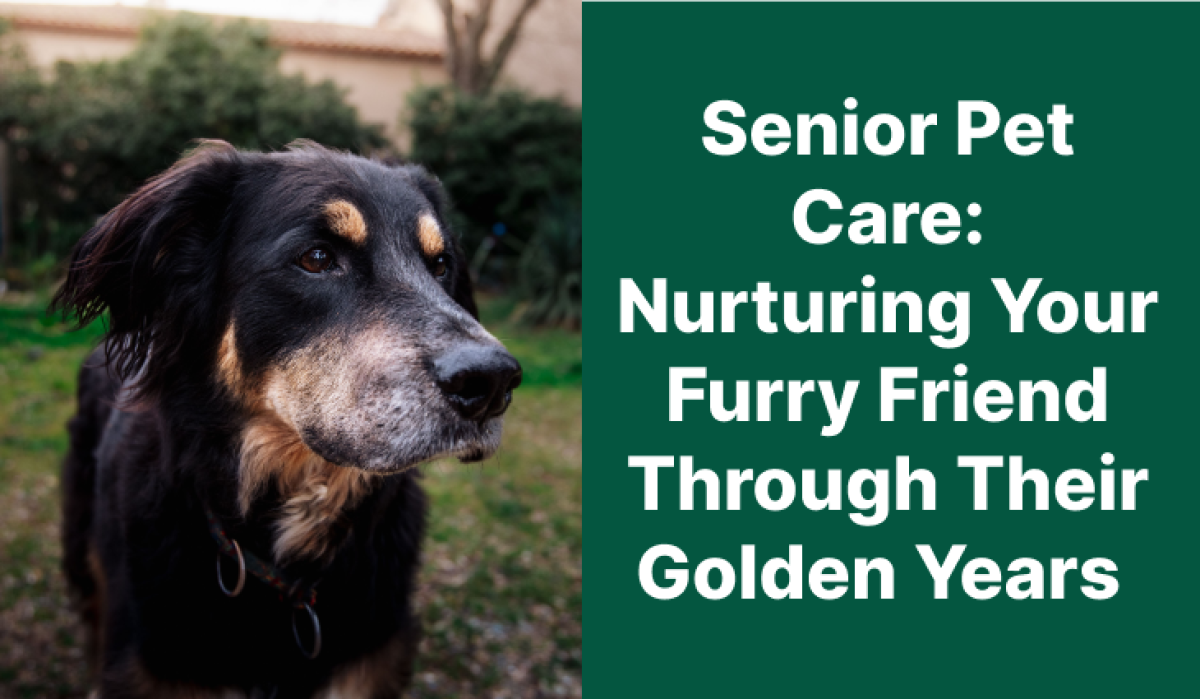News Blast: Your Daily Dose of Updates
Stay informed with the latest news and insights.
Aging Gracefully: Tips for Keeping Your Senior Pet Spry
Discover essential tips to keep your senior pet spry and thriving. Age gracefully together and enjoy every moment!
Essential Nutritional Needs for Senior Pets: Keeping Your Companion Healthy
As pets age, their nutritional needs change significantly, making it essential for pet owners to understand the nutritional needs for senior pets. Senior animals often require a diet that is lower in calories but higher in quality protein to maintain muscle mass. Incorporating easily digestible carbohydrates and fiber can also aid in digestion, which is crucial for older pets. It's important to consider omega-3 fatty acids, as they can promote joint health and reduce inflammation, further enhancing the quality of life for senior companions.
Moreover, hydration is a key aspect of an elderly pet's diet. Ensuring they have constant access to clean water can help prevent urinary issues and promote overall health. Some pet owners opt for wet food to increase moisture intake, which can be beneficial for seniors with dental issues or those that struggle with dry kibble. Additionally, regular veterinary check-ups can help identify specific dietary adjustments that may be needed, ensuring a tailored approach to meeting your senior pet's health requirements.

Exercise Guidelines for Aging Pets: Staying Active without Injury
As our furry friends age, it's essential to adapt their exercise guidelines to prevent injuries and ensure their comfort. Regular activity not only helps maintain a healthy weight but also supports joint flexibility and muscle strength. Here are some key considerations for creating a suitable exercise routine for aging pets:
- Consult with a veterinarian: Before starting any new exercise program, it's wise to discuss your pet's health status with a professional.
- Short and frequent sessions: Aim for multiple short walks or play sessions each day, rather than one long outing.
- Monitor for signs of discomfort: Keep an eye out for any signs of fatigue or joint pain, and adjust the activity level accordingly.
Incorporating gentle exercises into their daily routine can be a game-changer for aging pets. Activities such as swimming, which provides low-impact resistance, or slow-paced walks on soft surfaces, can enhance their well-being without causing strain. Additionally, engaging your pet in mental stimulation through interactive toys or simple training exercises can keep their minds sharp while reinforcing physical activity. Remember to:
- Warm-up: Just like humans, pets benefit from warming up their muscles. A short, slow-paced walk can serve this purpose.
- Include flexibility exercises: Simple stretches can help maintain their range of motion and prevent stiffness.
- Be patient: Allow your pet to set the pace and take breaks as needed.
Signs of Aging in Pets: When to Seek Veterinary Care
As our beloved pets age, they may exhibit various signs of aging that can impact their health and quality of life. Common indicators include decreased mobility, difficulty in climbing stairs, or reluctance to engage in play. Additionally, changes in appetite and weight loss may occur, threatening their overall well-being. It is crucial for pet owners to monitor these behaviors closely, as early detection can lead to timely interventions. Veterinary care becomes essential when these signs persist, ensuring your furry friend receives the necessary support and treatment.
Another critical aspect to consider is cognitive decline, which may manifest as confusion, changes in sleep patterns, or altered interactions with family members. If you notice your pet becoming disoriented or exhibiting signs of anxiety, it’s important to consult with a veterinarian. When to seek veterinary care often depends on the combination and severity of these symptoms. Regular check-ups can help identify underlying health issues and create a proactive approach to maintaining your pet's quality of life. Remember, your attention to these signs of aging can significantly impact your pet's happiness and longevity.